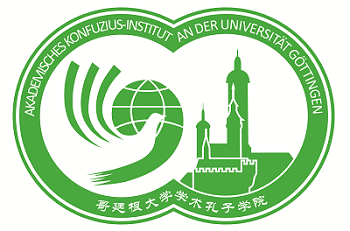
- This event has passed.
Lecture: From Mentorship to Comradeship: Irving Babbitt, The Critical Review, and Conservative Globalism in Republican China
July 2022 @ 10:00 - 12:00
Event Navigation

From Mentorship to Comradeship: Irving Babbitt, The Critical Review, and Conservative Globalism in Republican China
Kuo Ya-pei
Assistant Professor, Center for International Relations Research, University of Groningen
July 15, 2022, 10:00 AM (GMT +2) in Amsterdam, Berlin, Rome, Stockholm, Vienna
On Campus: KWZ 0.609 (University of Göttingen, Heinrich-Düker-Weg 14, 37073 Göttingen)
On Zoom: For registration, please use this zoom link.
Since the late 19th century, the “East vs West” dichotomy has been the predominant framework for understanding Chinese civilization and its place in the world. This talk focuses on The Critical Review (Xueheng 學衡), a “conservative” platform launched in 1922, and its effort to overcome this dichotomy. As many modern scholars have pointed out, those who were associated with the journal, such as Wu Mi and Mei Guangdi, held a globalist agenda with a conviction in cultural commonality across the East-West divide. This talk elucidates the particularist dimension of their globalist position. In spite of the apparent disparity between the East and the West, these intellectuals believed that regional civilizations contain certain shared, universal elements. The undeniable particularity of each cultural system thereby presents no barrier to the advancement of history. Rather, they argued that manifesting local specifics was a vehicle contributing to the modern quest for the universal. Through the notion of a diffused locus of the universal, The Critical Review relativized the West’s place in the modern world. The second half of the talk reconsiders Mei Guangdi and Wu Mi’s indebtedness to their American “mentor” Irving Babbitt. While Babbitt’s hermeneutic method and historical outlook left an imprint on the intellectual lives of his Chinese students, Wu and Mei were cognizant of their own as well as Babbitt’s particularity. Their globalism rendered both Prograssive-Era America and post-revolutionary China as parallels that could learn from each other but held neither to be the absolute paragon of human progress. Revering Babbitt, Mei and Wu wittingly deviated from his teachings in formulating their interpretations of Chinese culture. They epitomized an especially sober kind of student of the West, a kind that utilized the knowledge of the West to nurture their own cultural acumen, without idolizing the West as an object of emulation.
Prof. Dr. Axel Schneider, University of Göttingen
Prof. Dr. Thomas Fröhlich, University of Hamburg


Asia-Africa- Institute, Department for Chinese Language and Culture, University of Hamburg

Department of East Asian Studies, University of Göttingen
Sponsor:

Academic Confucius Institute, University of Göttingen
.
Image: sung ming whang: Early saturday morning in color, Attribution 2.0 Generic (CC BY 2.0), https://flic.kr/p/6E5PXd
